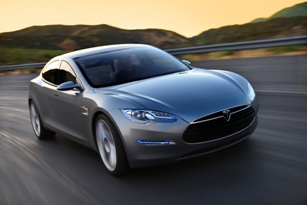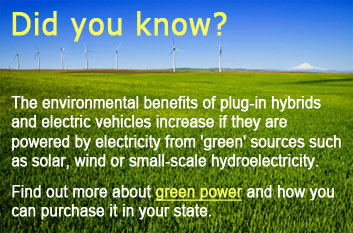All-Electric Vehicles

All-electric vehicles (EVs) run on electricity only. They are propelled by one or more electric motors powered by rechargeable battery packs. EVs have several advantages over vehicles with internal combustion engines (ICEs):
- Energy efficient. Electric vehicles convert about 59%–62% of the electrical energy from the grid to power at the wheels—conventional gasoline vehicles only convert about 17%–21% of the energy stored in gasoline to power at the wheels.*
- Environmentally friendly. EVs emit no tailpipe pollutants, although the power plant producing the electricity may emit them. Electricity from nuclear-, hydro-, solar-, or wind-powered plants causes no air pollutants.
- Performance benefits. Electric motors provide quiet, smooth operation and stronger acceleration and require less maintenance than ICEs.
- Reduce energy dependence. Electricity is a domestic energy source.
EVs do, however, face significant battery-related challenges:
- Driving range. Range is typically limited to 60 to 120 miles on a full charge, although a few models can go 200 to 300 miles.
- Recharge time. Fully recharging the battery pack can take 4 to 8 hours. Even a "fast charge" to 80% capacity can take 30 min.
- Battery cost: The large battery packs are expensive and may need to be replaced one or more times.
- Bulk & weight: Battery packs are heavy and take up considerable vehicle space.
However, researchers are working on improved battery technologies to increase driving range and decrease recharging time, weight, and cost. These factors will ultimately determine the future of EVs.
More Information
Hybrid and Plug-In Electric Vehicles
Benefits and Considerations of Electricity as a Vehicle Fuel
Maintenance and Safety of Hybrid and Plug-In Electric Vehicles
Batteries for Hybrid and Plug-In Electric Vehicles
Source: https://www.fueleconomy.gov/feg/evtech.shtml









